|
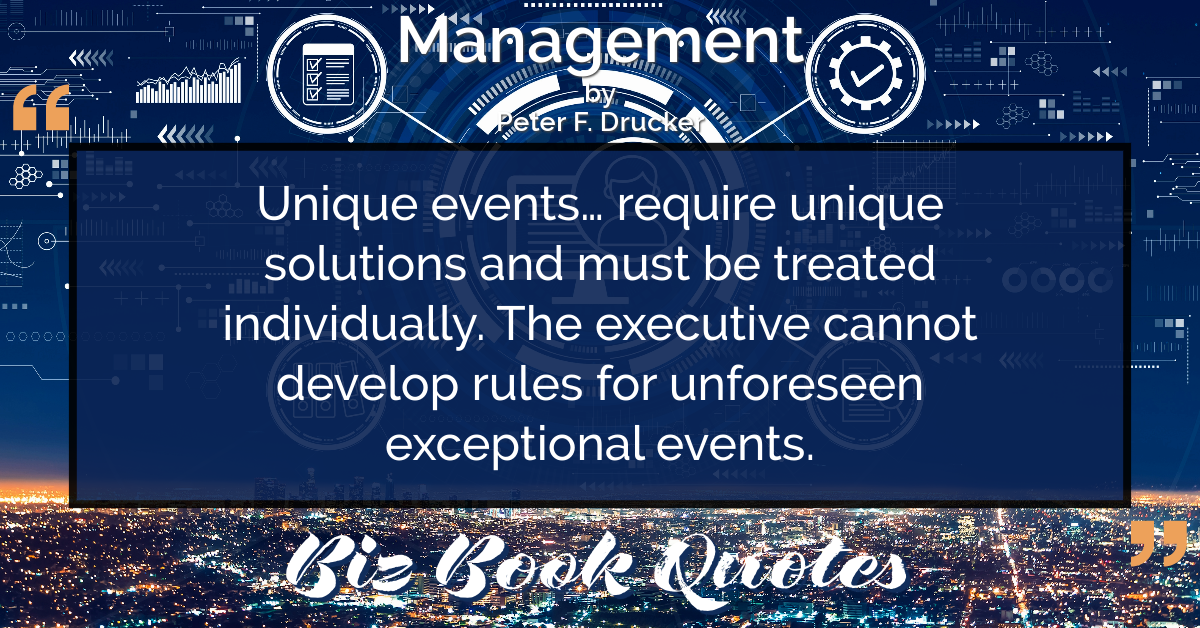
|
Management:
Unique events… require unique solutions and must be treated individually. The executive cannot develop rules for unforeseen exceptional events.
|
298 |
|
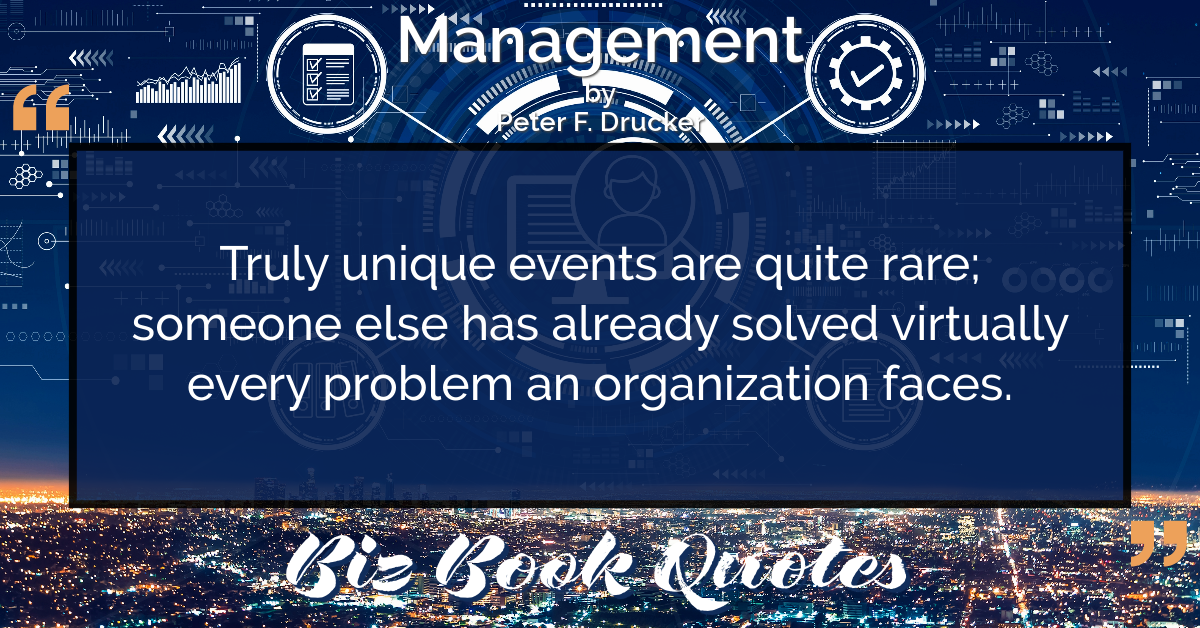
|
Management:
Truly unique events are quite rare; someone else has already solved virtually every problem an organization faces.
|
298 |
|
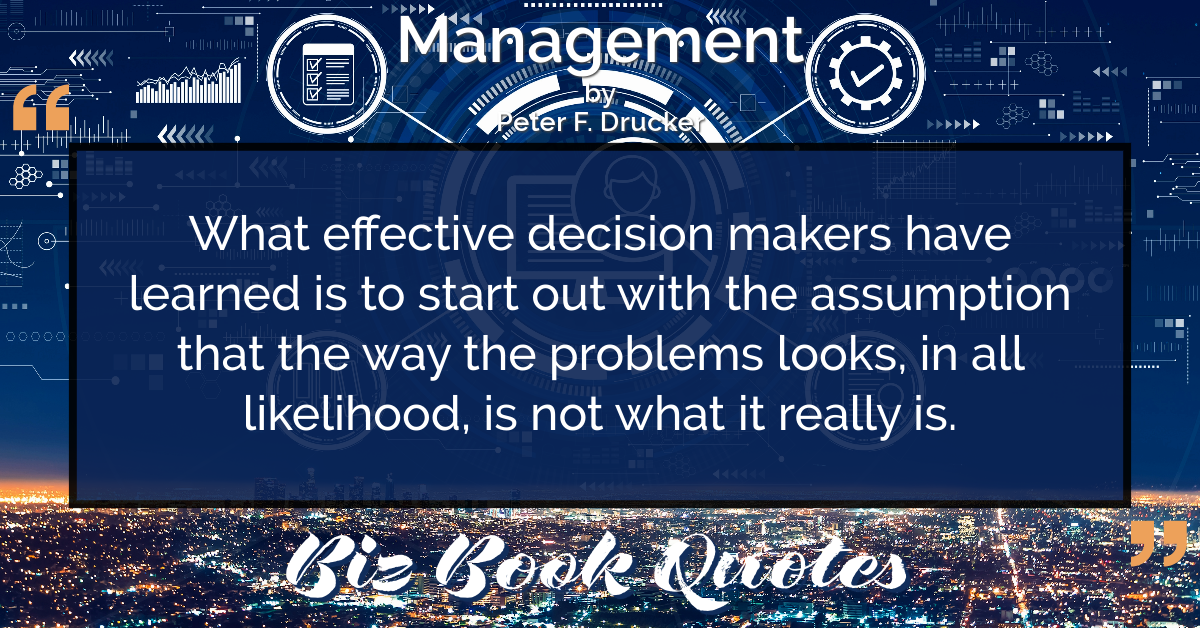
|
Management:
What effective decision makers have learned is to start out with the assumption that the way the problems looks, in all likelihood, is not what it really is.
|
298 |
|

|
Management:
The problem must be considered from all angles to ensure that the right problem is being tackled.
|
299 |
|

|
Management:
…unless one has considered alternatives, one has a closed mind.
|
302 |
|

|
Management:
The first rule in decision making is that one does not make a decision unless there is disagreement.
|
302 |
|
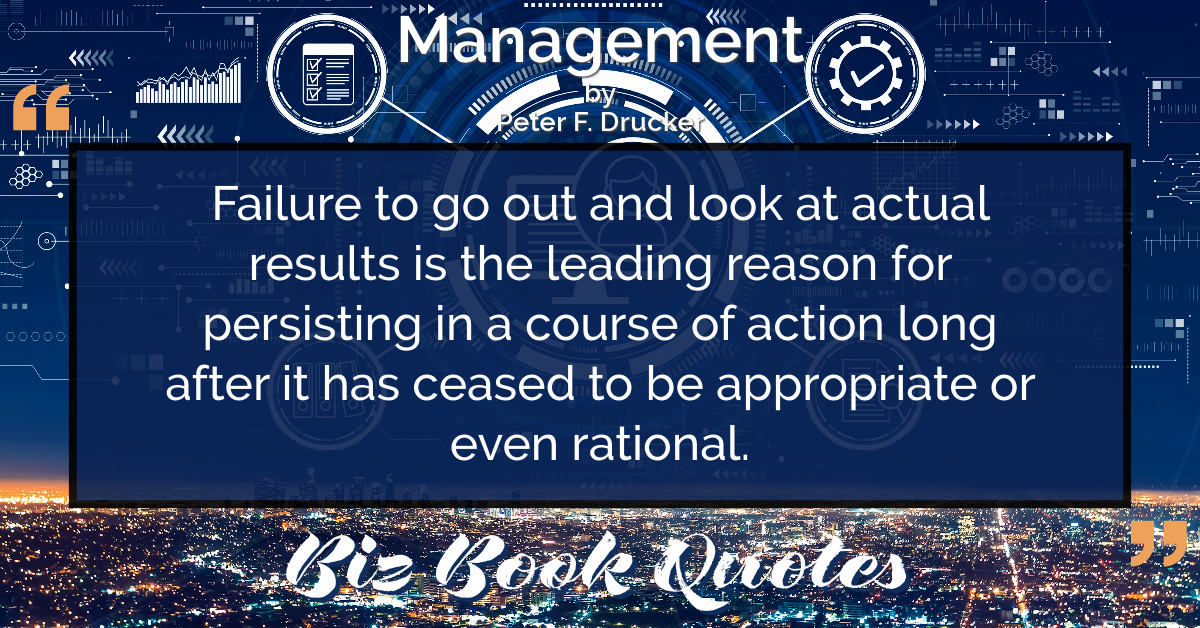
|
Management:
Failure to go out and look at actual results is the leading reason for persisting in a course of action long after it has ceased to be appropriate or even rational.
|
305 |
|

|
Management:
The things a person cannot do are of little importance; instead, you must concentrate on the things they can do and determine whether they are the right strengths for this particular assignment.
|
310 |
|

|
Management:
If you fail to accept [the] responsibility of making sure that the appointee understands his or her new job, do not blame the new person if he or she ultimately fails. Blame yourself, for you have failed to do your duty as a manager.
|
311 |
|
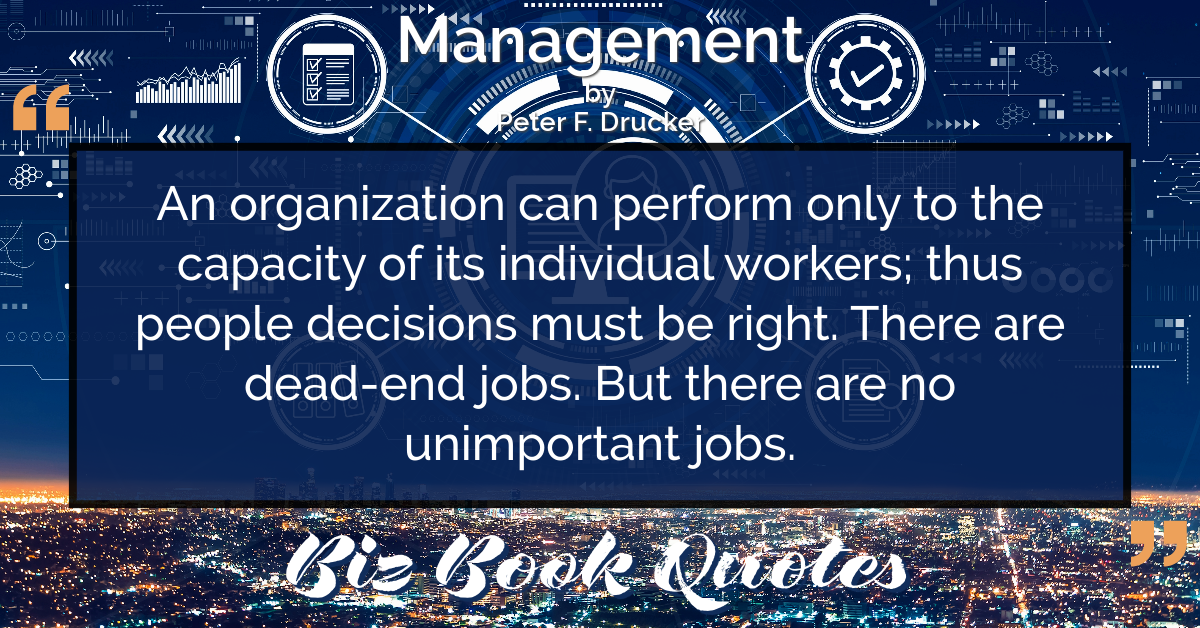
|
Management:
An organization can perform only to the capacity of its individual workers; thus people decision must be right. There are dead-end jobs. But there are no unimportant jobs.
|
312 |











